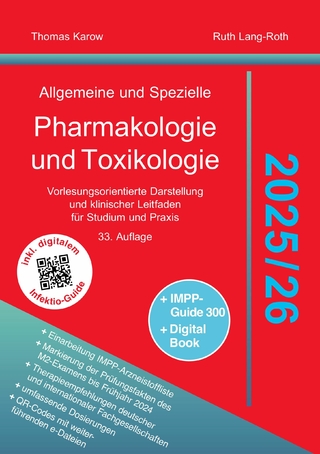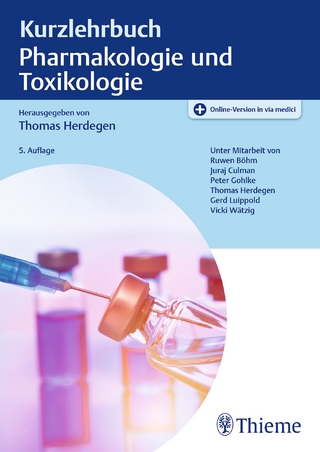
Mitochondrial Dysfunction
Academic Press Inc (Verlag)
978-0-12-461205-1 (ISBN)
- Titel ist leider vergriffen;
keine Neuauflage - Artikel merken
Methods in Toxicology, Volume 2: Mitochondrial Dysfunction provides a source of methods, techniques, and experimental approaches for studying the role of abnormal mitochondrial function in cell injury. The book discusses the methods for the preparation and basic functional assessment of mitochondria from liver, kidney, muscle, and brain; the methods for assessing mitochondrial dysfunction in vivo and in intact organs; and the structural aspects of mitochondrial dysfunction are addressed. The text also describes chemical detoxification and metabolism as well as specific metabolic reactions that are especially important targets or indicators of damage. The methods for measurement of alterations in fatty acid and phospholipid metabolism and for the analysis and manipulation of oxidative injury and antioxidant systems are also considered. The book further tackles additional methods on mitochondrial energetics and transport processes; approaches for assessing impaired function of mitochondria; and genetic and developmental aspects of mitochondrial disease and toxicology. The text also looks into mitochondrial DNA synthesis, covalent binding to mitochondrial DNA, DNA repair, and mitochondrial dysfunction in the context of developing individuals and cellular differentiation. Microbiologists, toxicologists, biochemists, and molecular pharmacologists will find the book invaluable.
Contributors
Preface
Introduction: Criteria for Assessing Normal and Abnormal Mitochondrial Function
Section I Systems for Study of Mitochondrial Dysfunction
1. Mitochondrial Isolation from Liver and Kidney: Strategy, Techniques, and Criteria for Purity
2. Mitochondrial Isolation from Brain: Strategy, Techniques, and Criteria for Purity
3. Intact Rat Brain Mitochondria from a Single Animal: Preparation and Properties
4. Study of Skeletal Muscle Mitochondrial Dysfunction
5. Small-Scale Preparation of Skeletal Muscle Mitochondria and Its Application in the Study of Human Disease
6. Metabolic Control Analysis as a Method to Assess Mitochondrial Dysfunction
Section II Assessment of Mitochondrial Dysfunction in Vivo and in Organ Systems
7. Commentary: Methods for in Vivo Assessment of Mitochondrial Function 98
8. Noninvasive Assessment of Mitochondrial Function by Breath Analysis Using Ketoisocaproic Acid
9. Absorption Spectroscopy for Assessment of Mitochondrial Function in Vivo
10. Analysis of Mitochondrial Function by Carbon-13 Nuclear Magnetic Resonance Spectroscopy in Intact Tissues
11. Phosphorus-31 Nuclear Magnetic Resonance Spectroscopy in the Study of Mitochondrial Metabolism
12. Mitochondrial Dysfunction in Ischemic Organs
13. Screening for Mitochondrial Cytopathy: The Subanaerobic Threshold Exercise Test
Section III Assay of Mitochondrial Structural Integrity
14. Morphometry of Mitochondria: Size, Internal Structure, Subcellular Distribution, and Three-Dimensional Reconstruction
15. Megamitochondria
16. Redox Status and Mitochondrial Inner Membrane Permeability
Section IV Mitochondrial Metabolism and Bioactivation and Detoxification Systems
17. Assessment of Mitochondrial Glutathione as a Measure of Cell Injury
18. Experimental Manipulation of Mitochondrial Glutathione Concentrations
19. Determination of Flux, Activity, and Activity State of Mitochondrial α-Keto Acid Dehydrogenase Complexes
20. Regulation of Oxygen Uptake in the Liver Lobule by Oxygen Tension
21. Generation of Reactive Oxygen Metabolites and Oxidative Damage in Mitochondria: Role of Calcium
22. Fatty Acid Metabolism and Reye's Syndrome
23. Antioxidative Function of Vitamin Ε and Ubiquinols
24. Mitochondrial NADPH
25. Long-Chain Acyl-CoA Metabolism by Mitochondrial Carnitine Palmitoyltransferase: A Cell Model for Pathological Studies
Section V Mitochondrial Energetics and Transport Processes
26. Identification of Mitochondrial Dysfunction at Coupling Site I: Loss of Activity of NADH-Ubiquinone Oxidoreductase during Myocardial Ischemia
27. Identification of Mitochondrial Dysfunction at Coupling Site II
28. Cellular Calcium and Mitochondrial Dysfunction
29. Chronic Alcoholism and the Mitochondrial FoFi-ATP Synthase
30. Mitochondrial Pyrophosphate Metabolism in Health and Disease
31. Toxic Effects of Calcium on Mitochondria
32. Calcium and the Regulation of Intramitochondrial Dehydrogenases
33. Use of Fluorescent Probes to Monitor Mitochondrial Membrane Potential in Isolated Mitochondria, Cell Suspensions, and Cultured Cells
Section VI Genetic and Developmental Approaches to Study of Mitochondrial Dysfunction
34. Commentary: Genetic Approaches to Mitochondrial DNA Diseases of Oxidative Phosphorylation
35. Developmental Aspects of Mitochondrial Dysfunction
36. Mitochondrial DNA Synthesis
37. Covalent Binding of Reactive Intermediates of Xenobiotics to Mitochondrial DNA
38. Mitochondrial DNA Repair and Cell Injury
Index
| Erscheint lt. Verlag | 5.7.1993 |
|---|---|
| Verlagsort | San Diego |
| Sprache | englisch |
| Gewicht | 920 g |
| Themenwelt | Studium ► 2. Studienabschnitt (Klinik) ► Pharmakologie / Toxikologie |
| Naturwissenschaften ► Biologie ► Biochemie | |
| ISBN-10 | 0-12-461205-9 / 0124612059 |
| ISBN-13 | 978-0-12-461205-1 / 9780124612051 |
| Zustand | Neuware |
| Haben Sie eine Frage zum Produkt? |
aus dem Bereich


